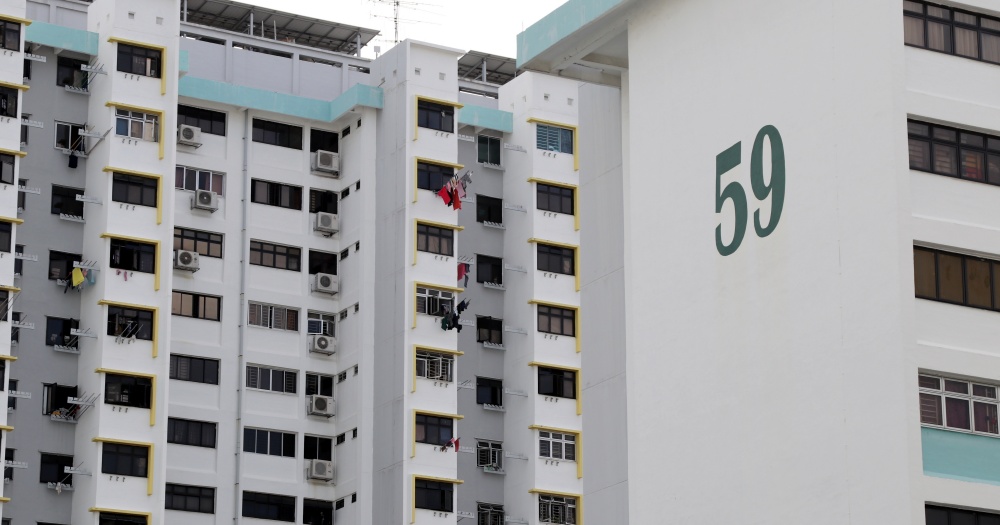In early February, Angie (not her real name) received a call from the Ministry of Health (MOH) informing her that she came into "transient contact" with a confirmed Covid-19 case.
She was asked to head home immediately and wait for a call later in the day.
"For good measure, I put on a mask, washed my hands immediately (because that's what the government said to do right, haha) and went home," Angie wrote in an email to Mothership, declining to reveal which patient she came into contact with.
Didn't think that it would happen to her
By then, the number of infected people in Singapore had been climbing steadily, although Angie herself remembers that she wasn't particularly terrified ("but definitely concerned, especially for the older folks in the family").
Which was why the call from MOH came as quite a shock.
"NOPE," she said when we asked if she ever thought that she would come into contact with an infected person.
"I think it's one of those things you pretty much think will only happen to someone else, something you read about in the news, like oh 'XXX number of people quarantined', okay noted."
The caller said she was calling from MOH and asked for Angie's identification number, date of birth, and address, among other things.
More importantly, Angie pointed out, the caller didn't ask for her bank details.
"After the call, I did take a moment to wonder if this was all a scam call," she wrote.
Visit by Cisco officers and nurse
Back at home, Angie received a second call informing her that some Cisco officers and a nurse would be visiting her place in the evening with Quarantine Order papers and to check if her home is suitable for a Home Quarantine Order.
A Home Quarantine Order is a legally binding directive used to isolate suspect cases so that virus transmission is limited.
An individual can be quarantined at home, at Government Quarantine Facilities, or at a hospital.
"They didn't provide a specific time, so I was a little anxious waiting for them to arrive," wrote Angie.
When they finally arrived at 10pm, all Angie had to do was have her temperature taken, and receive the Quarantine Order.
"My biggest takeaway was that man, they really are working their asses off, probably really late into the nights, to QO ppl as soon as cases get confirmed. Absolutely taken for granted by the rest of Singapore. After that I chided myself for feeling impatient while waiting."
So what's in a Quarantine Order?
There aren't many rules to follow, but they are pretty strict, according to this summarised list that Angie provided:
- You cannot leave your home.
- If you share your home with others, you have to stay in a designated "isolation" room with an attached toilet.
- You have to be contactable at all times.
- You have to take your temperature three times a day at 8am, 2pm, and 8pm.
- You have to report to MOH if you have a fever above 38°C.
Angie would be quarantined for slightly over a week. It would end exactly 14 days after her "transient contact" with the infected patient.
The experience was "pretty normal", akin to working from home, although, she admitted, not leaving the house was harder to do with each passing day.
Besides that the main difference is that she cannot go to work, although that isn't a problem.
"I have my laptop with me and everything so I can still do some work," she wrote. "It's really not a bad idea working in your pyjamas."
Random check-in calls
Her first random check-in call came in late on the first day. The caller took her temperature update and made a slightly odd request:
"They requested me to show three angles of my room over the video chat, which they took screenshots of, presumably to match over subsequent calls."
Angie marvelled at the efforts of the MOH contact tracing team.
"Something as mundane as calling you for your temperature three times daily isn't taken lightly. The teams must be working very long hours, small cogs in a huge machine in a bid to keep us safe."
Anticipating these random calls caused a tiny bit of anxiety. The earliest call she ever had was at 8am while the latest came in 1.30am.
Couldn't buy groceries
What was more anxiety-inducing was the constant fear that she might be infected with Covid-19 ("There is still a small worry that every sneeze may be virus-related"), and the panic that was happening outside.
Being quarantined, Angie had to depend on Amazon Prime for her groceries.
However, DORSCON Orange came and the resultant panic-buying overwhelmed the delivery services and left her high and dry.
"I felt really upset at how ugly some Singaporeans become in face of crisis," she wrote. "The stigma you hear surrounding healthcare workers, infected patients, or even ppl under QO is frightening."
Looking forward to enjoying the sun
Angie will be released from isolation soon. And she is looking forward to enjoying the sun and being outside on her bicycle.
While she will be glad for it be over, the entire episode has taught her to be more conscious about what she touches outside.
More importantly, Angie said, it taught her that there are many, many unsung heroes working to prevent a pandemic. "Being responsible during quarantine is a comparatively small effort in the grand scheme of things."
Top image by Joshua Lee.
If you like what you read, follow us on Facebook, Instagram, Twitter and Telegram to get the latest updates.
